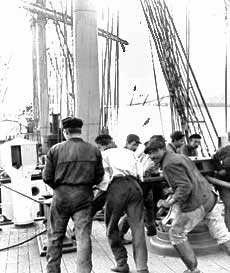Tim Lambert
Indians in the Making response
The history of Puget Sound is a very interesting one. As Alexandra Harmon states in her book, Indians in the Making, there were “hundreds of villages [of Native Americans] near Puget Sound”(8). When the Europeans came, they were able to trade liberally with most of the villages and tribes around the sound. Although the different cultures traded different things to each other, they both had the same thing in mind, to prosper economically.
The two cultures of Native Americans and Europeans were very different in the early 19th century. Aside from a completely different language, the Native Americans had small canoes and tiny villages around the Puget Sound. The Europeans, on the other hand, came on large ships and ripped forts out of the ground to satisfy their trading needs. Culturally, the differences were immense. The Native Americans were a people who’s custom it was “to consult doctors outside their community”(39). This action gave the Europeans an enlarged sense of accomplishment. They believed the Native Americans were forsaking their beliefs for those of the English, which was not the case. Spiritually, these cultures were also very different. The Europeans had religious values that were congruent with Christianity. Like in many other places where the Europeans landed, they were able to press some of the Puget Sound Native Americans to into their religion. One wealthy Native American named Tslalakum took a hold of Christianity and after a battle said his enemy lost because, “they did not know God, sang no canticles, and did not make the sign of the cross”(33). However, many Native Americans did keep their spiritual value of dancing, which was a huge part of their culture.
Even though these cultures had many differences, they also had one major thing in common: to prosper from trading. Trade was very big in the region before the Europeans came, but when they did come, it exploded. As Harmon states, “Before foreign traders appeared on Puget Sound, there were probably few, if any, occasions for large-scale, nonviolent gatherings of people who were complete strangers to each other” (36).
Yo guys! Much like last week this is my rough draft and is not finished. But, any kind of feedback would be awesome. Thanks a bunch!
